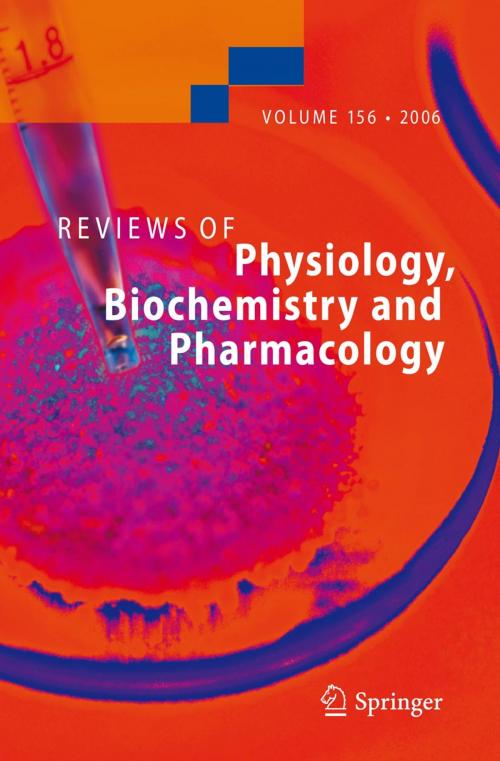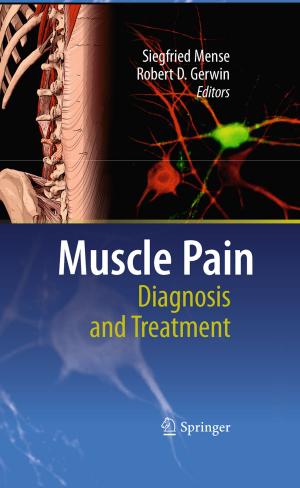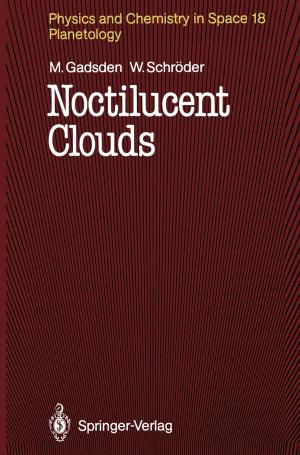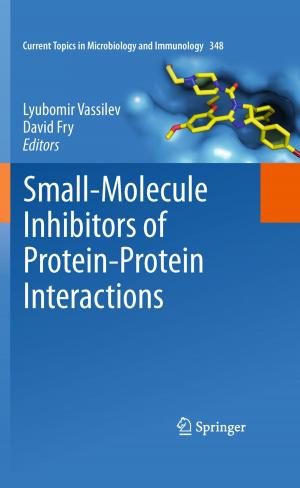Reviews of Physiology, Biochemistry and Pharmacology 156
Nonfiction, Health & Well Being, Medical, Medical Science, Physiology| Author: | ISBN: | 9783540331469 | |
| Publisher: | Springer Berlin Heidelberg | Publication: | May 23, 2007 |
| Imprint: | Springer | Language: | English |
| Author: | |
| ISBN: | 9783540331469 |
| Publisher: | Springer Berlin Heidelberg |
| Publication: | May 23, 2007 |
| Imprint: | Springer |
| Language: | English |
Gastric acid plays a primary role in digestion as well as in the sterilization of food and water. Gastric juice contains the most concentrated physiological acid solution (pH~1) as a result + – of H and Cl ion secretion [hydrochloric acid (HCl) production] by parietal cells in the oxyntic mucosa of the stomach. The combined output of the parietal cells leads to the sec- tion of 1–2 l of HCl at a concentration of 150–160 mmol/l into the interior of the stomach. In order to facilitate the production of acid, the parietal cell relies on the generation of a high + concentration of H ions that are transported into the lumen of the gland. This process is fa- + + cilitated by activation of the gastric H ,K -ATPase, which translocates to the apical pole of + – the parietal cell. K as well as ATP hydrolysis and Cl all play critical roles in the activation + + of gastric H ,K -ATPase and are essential for the functioning of the enzyme (Reenstra and Forte 1990). This review will examine the classical proteins that have been linked to acid secretion as well as some recently identi?ed proteins that may modulate gastric acid secretion, in - dition we discuss the known secretagogues, and their receptors including a new receptor, which upon stimulation can lead to acid secretion.
Gastric acid plays a primary role in digestion as well as in the sterilization of food and water. Gastric juice contains the most concentrated physiological acid solution (pH~1) as a result + – of H and Cl ion secretion [hydrochloric acid (HCl) production] by parietal cells in the oxyntic mucosa of the stomach. The combined output of the parietal cells leads to the sec- tion of 1–2 l of HCl at a concentration of 150–160 mmol/l into the interior of the stomach. In order to facilitate the production of acid, the parietal cell relies on the generation of a high + concentration of H ions that are transported into the lumen of the gland. This process is fa- + + cilitated by activation of the gastric H ,K -ATPase, which translocates to the apical pole of + – the parietal cell. K as well as ATP hydrolysis and Cl all play critical roles in the activation + + of gastric H ,K -ATPase and are essential for the functioning of the enzyme (Reenstra and Forte 1990). This review will examine the classical proteins that have been linked to acid secretion as well as some recently identi?ed proteins that may modulate gastric acid secretion, in - dition we discuss the known secretagogues, and their receptors including a new receptor, which upon stimulation can lead to acid secretion.















